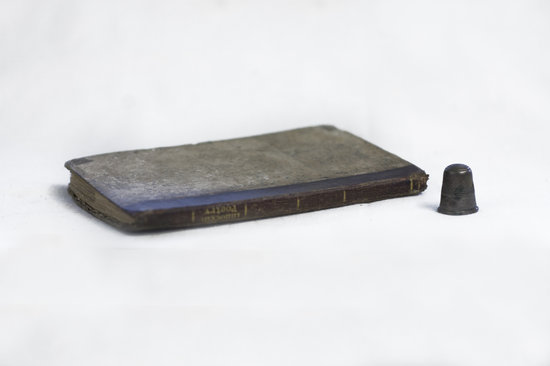Narrative
The Darton Family
11. Innocent Poetry (1829; 72 pp.,14.5 × 9 cm, 5 plates) is a collection of 53 short poems addressed to a juvenile audience. The majority of the poems are written in ballad meter, with the occasional heroic couplet. The text was a major success, published as early as 1811(?). Mary Elliott provided the sort of literature that helped Darton’s business flourish. Her success as an author of children’s books can be attributed to the growing demand for juvenile literature beginning in the early nineteenth century. Concurrent with a steadily increasing middle-class and a rise in literacy was a growing interest in literature for the youngest members of society. Elliott’s verses depict a harsh world in which transgressions—be they ever so mild—have severe consequences. While good behavior is justly rewarded, the reader is consistently reminded that one must exercise vigilant morality as eternal sorrow lurks behind every immoral slip. Elliott emphasizes the importance of religious piety, moral behavior, virtue, wisdom, duty to one’s parents and the poor, and work ethic. She warns against idleness, revenge, pleasure, discontent, censure, and overall spiritual distance from God. Political subject matter—notably aligned with Darton Jr.’s Quaker values—occasionally enters Elliott’s poems. “God Every Where” has an abolitionist message, emphasizing the equality of man before God, regardless of nation or race. Her poetry has the specific purpose of inculcating morality, yet she also includes meditations on the wonders of youth and on the beautiful innocence of children. However, Innocent Poetry is not so much a celebration of childhood as it is a religious guidebook for its young audience. The book’s publication date is not stated within the text. The date specified is based on the date printed underneath each illustration: May 1, 1829.
John Harris, listed as one of the sellers, is also important. He began his career as a publisher and bookseller as an apprentice to Thomas Evans. He briefly worked for John Murray before becoming the manager for publisher Elizabeth Newbery. The Newbery firm was one of the first publishing companies to specialize in publishing children’s literature in the eighteenth century. Harris bought Newbery’s business between 1801 and 1802. He continued to specialize in children’s literature, although he also issued publications such as the Gentleman’s Magazine. Harris experienced great success with small picture books, and published a series of texts that combined engraved texts and plates following the popularity of The Comic Adventures of Old Mother Hubbard and Her Dog. He died a wealthy man in 1846, leaving 30,000 pounds to his family and friends in investments and bequests. It is interesting to note that William Darton Sr. and John Harris both had connections to the Newbery firm: in 1792, Darton Sr. bought from John Newbery’s descendants the copyright to 24 sixpenny children’s books.
Linda Van Netten, University of Alberta, 2010
















